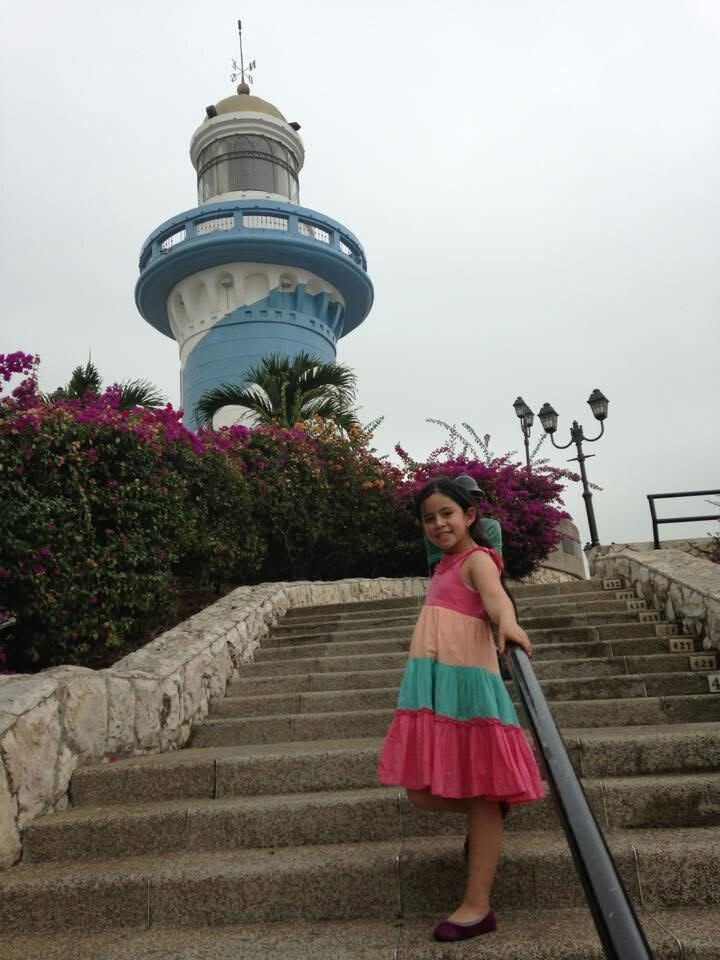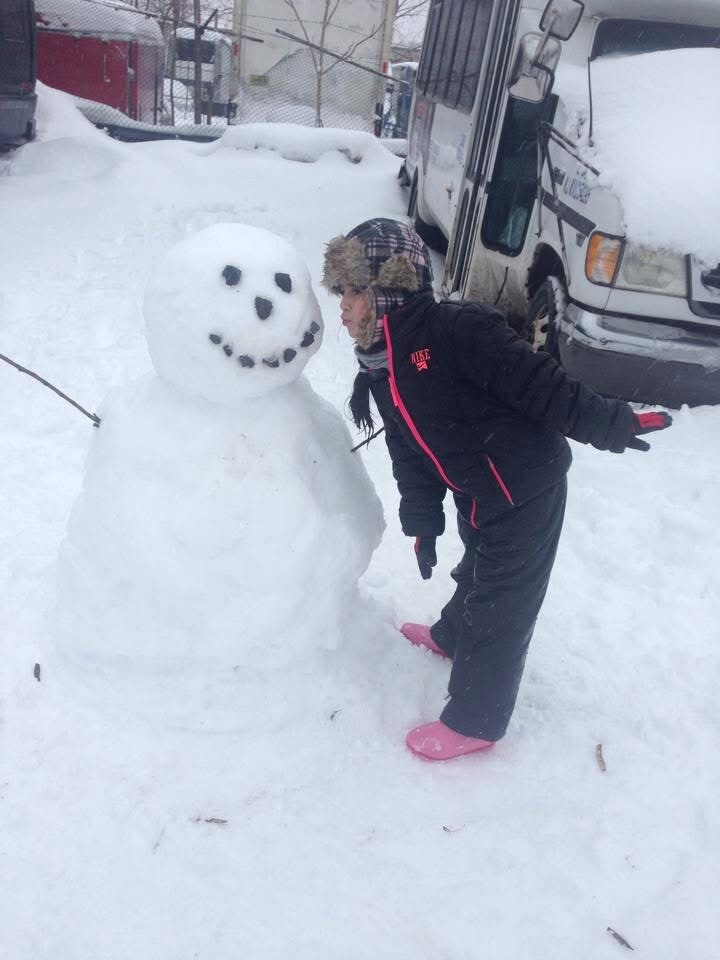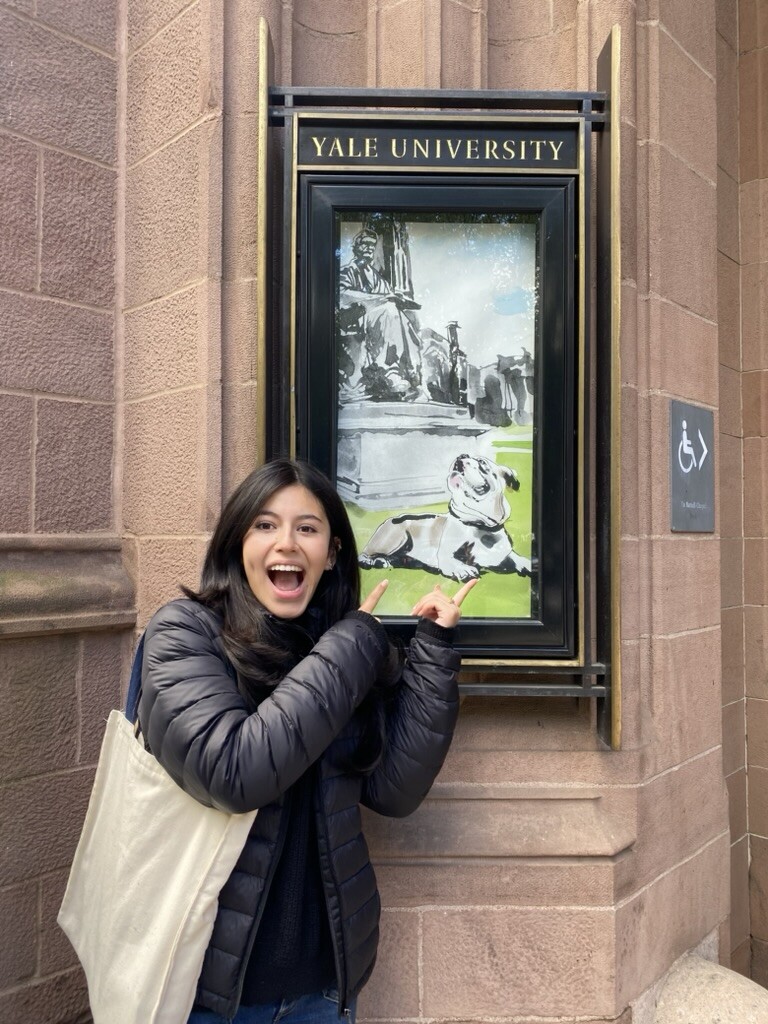Melissa Vergara
Memorial High School Class of 2024
West New York, NJ
Yale University Class of 2028
“I spent my early childhood living in the small city of Azogues, located in Ecuador. Just north of Cuenca, my hometown was known for its mountainous terrain and the large steps leading up to the cathedral that stands at one of the highest points in the city. Living near the foot of those steps, I have vivid memories of admiring my grandmother. She was a teacher who worked with at-risk youth in the city, and she always emphasized the importance of prioritizing one’s education.”
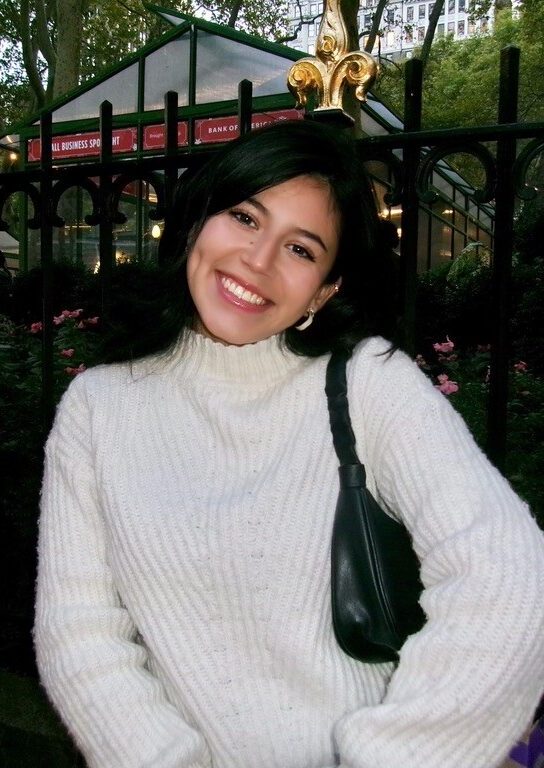
Melissa Vergara spent her early childhood living in the small city of Azogues, located within Ecuador. Just north of Cuenca, her hometown was known for its mountainous terrain and the large steps leading up to the cathedral that stands at one of the highest points in the city. Living near the foot of those steps, Melissa—from an early age—remembers admiring her grandmother: a teacher who worked with at-risk youth in the city and stressed the importance of prioritizing one’s education.
At seven years old, Melissa moved to West New York, New Jersey with her parents. She imagined moving so far away would feel isolating, but she quickly found community in the small town. She noticed that it was largely Hispanic and felt similar to Azogues in some ways—her block seemed just as vibrant and there was a general attitude of openness and acceptance as she played outside with the other children who lived along her street.
Where Melissa really struggled—however—was with her academic transition. She had an accent that teachers oftentimes couldn’t understand and Ecuador utilized a different math curriculum. Contending with all of this in elementary school, she began to feel out of place in the classroom. However, she pushed past these feelings of discomfort and leaned on her peers in the school’s Bilingual program and her curious nature. Through this, she was able to take control over her academics, finding deep personal fulfillment when she was able to push herself intellectually.
At Memorial High School, Melissa had grown accustomed to academic rigor as she took advantage of many of the honors, AP and dual-enrollment courses that were offered in West New York. She knew she wanted to go to college, but in being the first in her family to consider attending college in the US and being the eldest of two siblings, she felt pressure to pave the way for herself and the rest of her family. It was for this reason that during January of her junior year she made the decision to join the Circle Match community.
Through the program, Melissa was paired with her advisors who were Memorial High School alumni who were once in the Circle Match program: Irenys Reyes (Cornell ‘26) and Annalie Diaz (Yale ‘27). Her advisors encouraged her to actively involve herself in communities and activities that excited her, which ultimately empowered her to join the West New York Board of Education as one of The Board’s first-ever student representatives.
Though ranked as the valedictorian of her graduating class and no longer in the district’s ESL program, Melissa remembered the difficulties that she faced as a multilingual student and advocated for policy changes within the district’s multilingual program. In doing this, Melissa voiced the needs of a growing multilingual student population in the school district, specifically hoping to advocate for college access for students who otherwise would not be able to see a 4-year-degree as a potential option.
Despite her leadership in the school district and her high class rank, Melissa struggled when it came to choosing which universities to apply to. She felt as if people who went to Ivy League colleges and similarly selective universities were geniuses who were so intelligent that they didn’t need any support to attend these institutions. Despite Yale being her dream school, Melissa originally had no intention of even applying because she believed that Yale was a far-off dream—an institution that would never admit her. However, with the support of Irenys, Annalie, and her family, Melissa made the choice to give it a try and she applied to Yale Early Action.
As she anxiously awaited her admissions decisions, Melissa continued volunteering as a Spanish translator at the local hospital. In doing this, she began exploring how her advocacy for multilingual students could extend into serving multilingual communities through the medical field. She noticed that there were many Hispanic, immigrant families who would grow ill and avoid reaching out for professional medical care. Scared that they would be turned away or not be properly understood by a doctor due to a language barrier, families only sought professional medical care when the situation worsened.
When mid-December approached and Yale admissions decisions were released, Melissa held off on opening her decision letter. Three days later, curiosity getting the best of her, Melissa sat at her dining room table with her laptop opened in front of her. Logging onto the Yale application portal and opening up to see her admissions status, a large black box covered her screen with a play button at the center. Before she knew what was happening, dancing bulldogs populated the screen with the words “Yale 2028.” She burst into tears; she’d gotten into Yale.
Now a student at Yale, Melissa is studying neuroscience with the dream of coming back to her community as a doctor where she wants to make medical care more accessible for immigrant families and other people from her community who wouldn’t regularly have access to the highest levels of medical care. In college, she’s begun to take American Sign Language, so that she can also communicate effectively with patients who are deaf or hard of hearing.
As she works toward her dream of being a doctor, Melissa has found immediate joy in serving other students from her community as a college advisor through Circle Match. Spending her first year advising students from her hometown, she hopes to instill a sense of confidence within her students. She wants them to understand that it’s okay to push themselves, and while it’s important to engage with one’s community, it’s equally as important to take time outside of that same community. It is through the experience of leaving, that they can come back and—with a fresh perspective—address the needs of their community.
Reflecting on her own story, Melissa shares the importance of taking a moment to take inventory of all of the people who helped you be where you are, small or large—gratitude is a big thing that should be practiced every day. While your own successes may feel like your own, they’re not just your own. Success is made up of so many people: your parents, your teachers, your community. It takes a village, and it’s important to contribute to the very people who supported you along the way.
